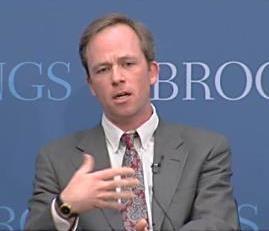
Primary challenges in recent election cycles have attracted more media hype than ever, with special interest groups and intense partisan fundraising campaigns polarizing voters and taking aim at moderate incumbents — a practice known as “primarying.”
Yet, according to Robert G. Boatwright, professor of political science at Clark University, the link between primary competition and the political divide is not as strong as the growing media-generated hype would suggest.
Boatright’s new book, “Getting Primaried: The Changing Politics of Congressional Primary Challenges” (University of Michigan Press 2013), offers a new understanding of the role of interest groups in congressional elections and takes a close look at the patterns of primary challenges over the past 40 years.
Update: “Getting Primaried” is cited by the National Journal (Dec. 9) as one of the best political books of 2013.
“Congressional primary elections have received little scholarly attention, and the literature on primaries has generally concluded that they are either a minor irritant to incumbents in lopsidedly partisan districts . . . or the consequence of scandalous misbehavior on the part of the incumbents,” says Boatright. “All this has changed during the past decade.”
On Nov. 5, Professor Boatright served as panelist at the Brookings Institution webcast “2014 Midterm Election Preview: One Year Out.” Click here to watch the video.
In his book, Boatright argues that “primaries do not necessarily ‘mean’ anything, at least not all of the things that have been ascribed to them by those who would use them to explain contemporary American politics. But, for incumbents who find themselves facing opposition from the same party activists who may once have been their strongest supporters or for challengers who are inspired to run for office due to unhappiness with their party’s standard-bearer, they mean quite a bit.”
Seth Masket, chair of the Department of Political Science at the University of Denver, writes: “Boatright sets the record straight on a remarkably tricky area of American politics.”
Professor Boatright received his B.A. from Carleton College and his Ph.D. from the University of Chicago. He teaches courses on American political behavior, political parties, campaigns and elections, interest groups, political participation, and political theory at Clark University. He has served as a research fellow at the Campaign Finance Institute, as an American Political Science Association Congressional Fellow, and as a research associate at the American Judicature Society. He has written books and articles on campaign finance reform, congressional redistricting, the congressional budget process, and on various aspects of jury service.
Founded in 1887 in Worcester, Massachusetts, Clark University is a small, liberal arts-based research university addressing social and human imperatives on a global scale. Nationally renowned as a college that changes lives, Clark is emerging as a transformative force in higher education today. LEEP (Liberal Education and Effective Practice) is Clark’s pioneering model of education that combines a robust liberal arts curriculum with life-changing world and workplace experiences. Clark’s faculty and students work across boundaries to develop solutions to complex challenges in the natural sciences, psychology, geography, management, urban education, Holocaust and genocide studies, environmental studies, and international development and social change. The Clark educational experience embodies the University’s motto: Challenge convention. Change our world.
